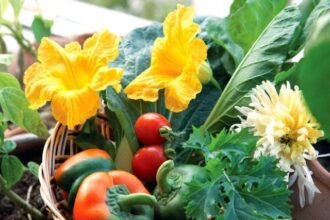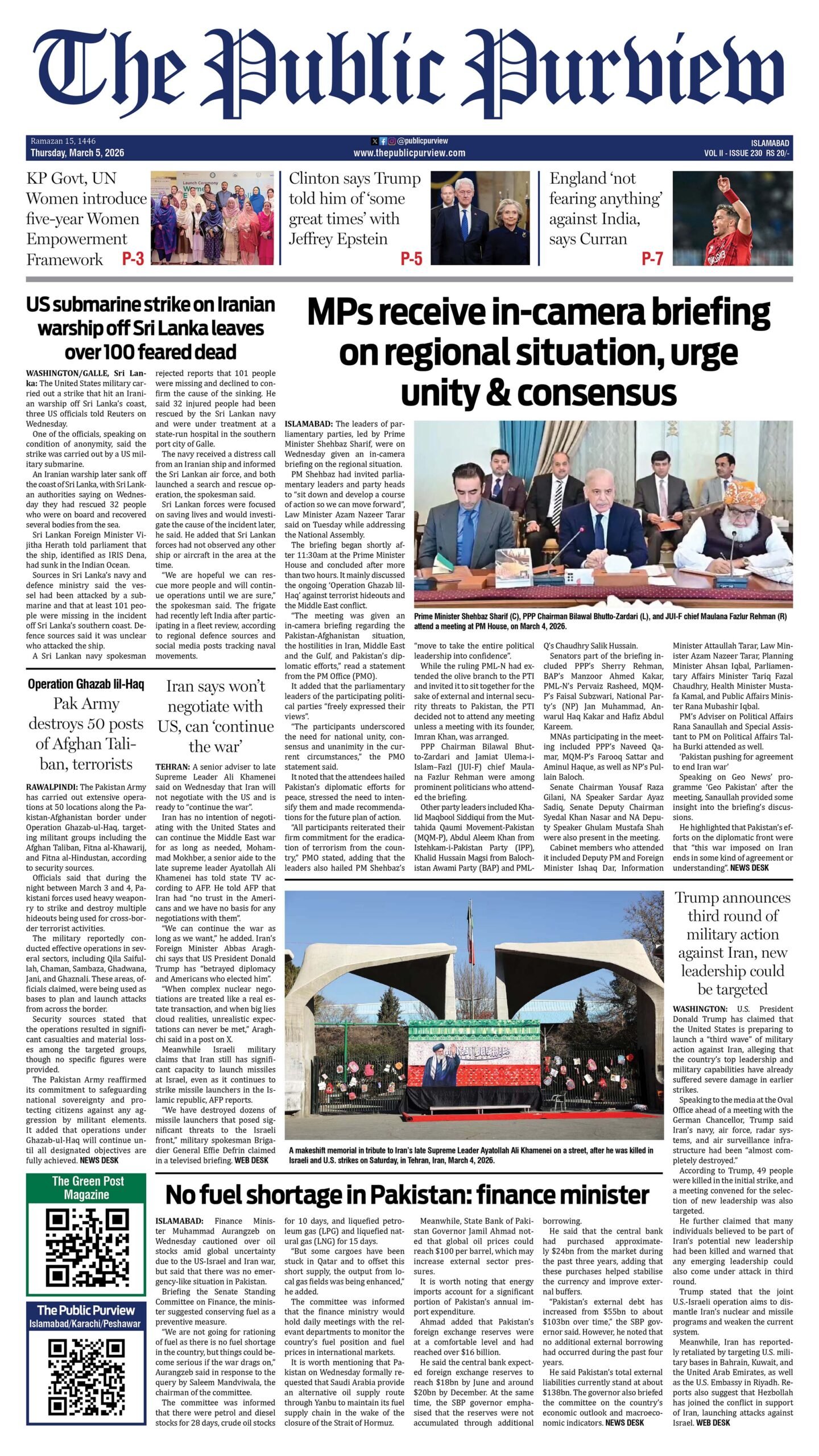Tanzeel Khanzada
Pakistan faces a challenge in ensuring food security for its growing population. With a population of over 240 million, the demand for food continues to rise, placing pressure on the country’s agricultural sector. Limited arable land, water scarcity, climate change, and outdated farming techniques add to the problem. Collaboration with nations like China and Belarus, known for their advancements in agriculture, offers a solution to transform Pakistan into a greener and more food-secure nation.
China has become a leader in agricultural innovation, using technology and research to improve food production. Its expertise in hybrid seed development, precision farming, and efficient irrigation systems has improved its agricultural sector. Belarus, a smaller player on the global stage, is recognized for its developments in mechanized farming, sustainable practices, and dairy production. Combining the strengths of these nations with Pakistan’s agricultural potential can lead to significant results.
One area where Pakistan can gain from collaboration with China and Belarus is the use of advanced farming technologies. China’s work in precision farming—using satellite data, sensors, and artificial intelligence to improve crop yields—can help Pakistani farmers make better decisions about planting, irrigation, and pest control. This approach reduces waste and ensures efficient use of resources like water and fertilizers, which are critical in a water-scarce country like Pakistan. Belarus can contribute through its expertise in creating reliable agricultural machinery that suits Pakistan’s varied terrain. Updating farming equipment can improve productivity and reduce the workload on farmers.
Water management is another challenge that can be addressed through joint efforts. Pakistan’s reliance on traditional irrigation methods, such as flood irrigation, leads to water wastage. China’s experience in drip irrigation and water-saving technologies offers a practical solution. By adopting these techniques, Pakistan can conserve its water resources while ensuring crops get sufficient hydration. Belarus has been successful in managing wetlands and developing drainage systems, which could help Pakistan’s flood-prone areas. Projects focused on water management could ensure a steady supply of water for agriculture while reducing the risks of droughts and floods.
The use of high-yield and climate-resilient crop varieties is another area where China can contribute. Chinese researchers have created hybrid seeds that are productive and resistant to pests and diseases. Introducing these seeds in Pakistan can help farmers increase yields and lower dependency on chemical pesticides, which often harm the environment. Belarus, with its dairy industry, can assist Pakistan in improving livestock farming. Sharing knowledge on cattle breeding, feed management, and milk production can enhance the output of Pakistan’s dairy sector, which supports rural livelihoods.
Education and training are important parts of any successful partnership. China and Belarus can help by building the capacity of Pakistani farmers through knowledge exchange programs, workshops, and training sessions. These efforts can help farmers adopt modern techniques, understand the value of innovation, and overcome resistance to change. Setting up agricultural research centres in Pakistan with support from Chinese and Belarusian experts can also create solutions for local needs. These centres could focus on pest management, soil health, and climate adaptation, ensuring sustainable farming practices.
Infrastructure development is another key factor in improving Pakistan’s food security. Many rural areas lack proper storage facilities, resulting in post-harvest losses. Collaboration with China and Belarus can support the construction of modern storage systems, such as silos and cold storage units, to preserve agricultural produce for longer. Better storage infrastructure will not only reduce waste but also help stabilize prices, benefiting both farmers and consumers. Additionally, building better roads and transport networks with Chinese support can ensure farm produce reaches markets on time, reducing spoilage and improving farmers’ incomes.
Collaboration in agricultural trade can also strengthen Pakistan’s food security. By forming export partnerships, Pakistan can access international markets for its agricultural goods. China’s large consumer base is a valuable market for Pakistani products like rice, fruits, and vegetables. Similarly, Belarus, with its connections to European and Eurasian markets, can help Pakistani products reach new regions. In return, Pakistan can import agricultural inputs, such as seeds, fertilizers, and machinery, from these countries, creating a mutually beneficial trade relationship.
Environmental sustainability must be a focus in these efforts. China and Belarus use practices that limit environmental harm. By adopting their methods, Pakistan can promote soil health, reduce emissions, and conserve biodiversity. For example, crop rotation and organic farming can improve soil fertility and reduce dependence on synthetic chemicals. Belarus’s knowledge in renewable energy solutions, such as biogas production from agricultural waste, can be used to create a sustainable agricultural system in Pakistan.
This collaboration is not just about securing food but about creating a stronger and more sustainable agricultural system. As a nation, Pakistan must grab these opportunities, focusing on learning and implementing modern methods. China and Belarus offer tested pathways to effective agricultural practices, and by building on their strengths, Pakistan can transform its agricultural sector. But the question is when?
The author is a communications professional and advocate for sustainable development.







 Today's E-Paper
Today's E-Paper